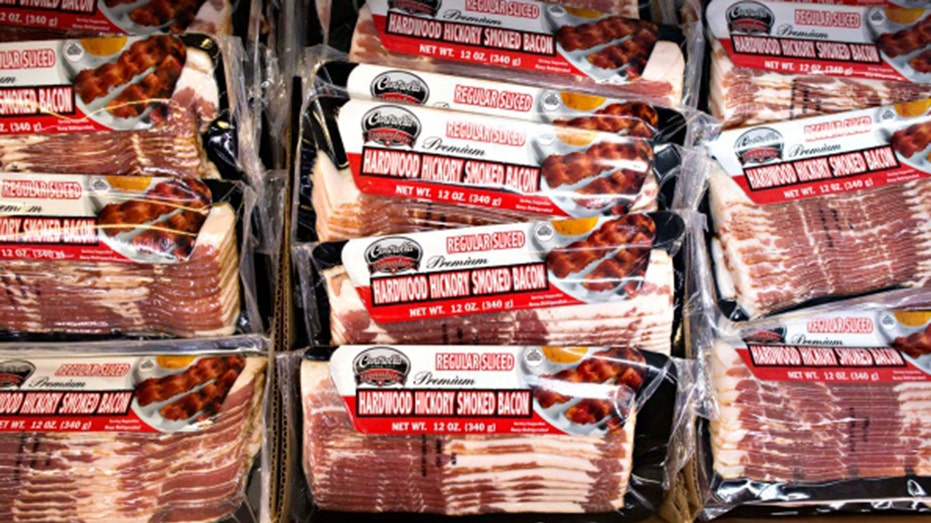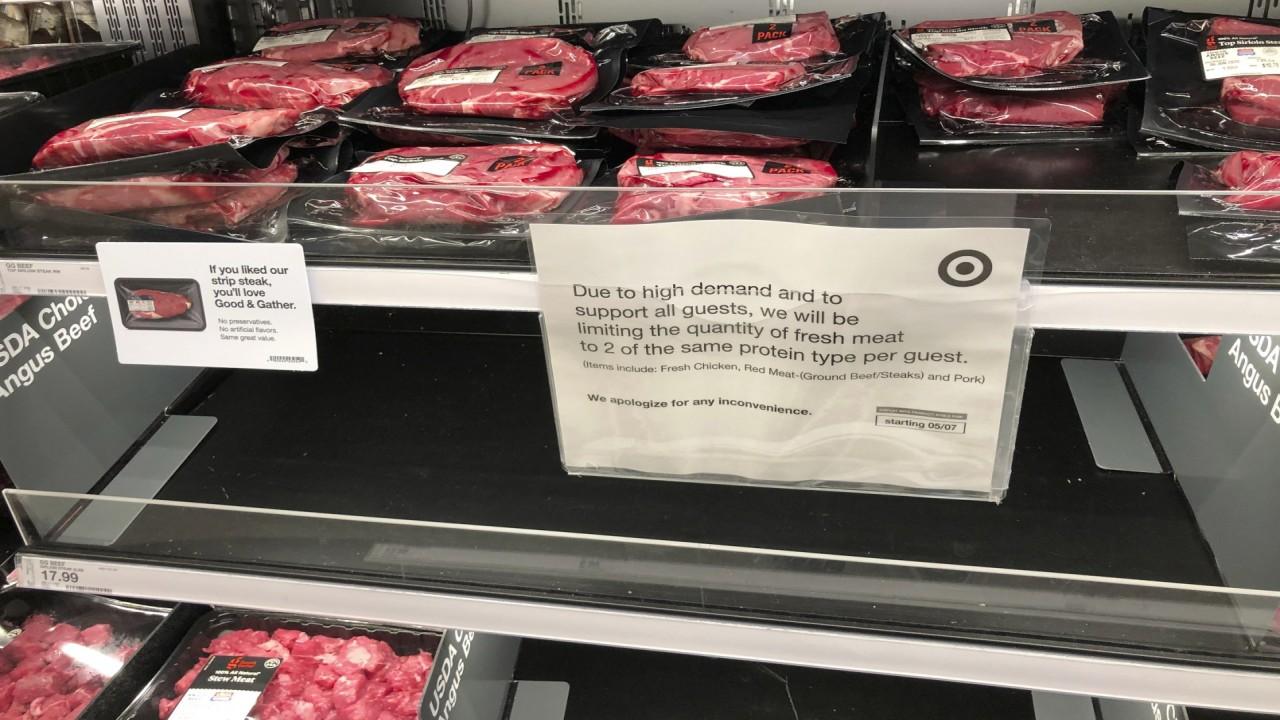Coronavirus caused meat prices to spike: Here are ways to cut the grocery bill
The price Americans are paying for groceries is up 5.6%
The current price of food in the U.S. is hard to swallow.
The food sector of the Consumer Price Index, which tracks how much Americans are paying for products and services, has surged 4.5 percent in the past year. The prices for food consumed at home up have increased by 5.6 percent.

Meat has seen the biggest price hike as a result of meat plant shutdowns during the coronavirus. (Daniel Acker/Bloomberg via Getty Images).
And the price of meat has undergone the biggest price hike because of meat plant shutdowns during the coronavirus pandemic, coupled with grocery store shortages. Indeed, the price of beef and veal is up 25.1 percent pork is up 11.8 percent and poultry has increased 8.7 percent, according to the CPI. Eggs were also up 12.1 percent.
USDA FINDS CORONAVIRUS-RELATED MEAT PLANT SHUTDOWNS BEHIND CATTLE, BEEF PRICE DISPARITY
The price hikes have been a result of supply chain issues as a result of the coronavirus pandemic, John Newton, the chief economist at the American Farm Bureau Federation, said. But he anticipates the prices will drop in the coming months.
"The product is there and, now that we’ve gotten the supply chain issues repaired, I think we’ll see those retail prices start to alleviate," Newton told FOX Business. "Maybe not fully because it does cost more for the food processor to make sure their workers are safe, so that cost has to be absorbed in the supply chain."
National grocery store chains have been doing their part to stay competitive without raising prices for consumers.
CANNED MEAT SALES SURGE AS CORONAVIRUS PANDEMIC CONTINUES
"As we continue to expand, we promise to do everything in our power to offer the lowest prices, every day, without exception," Aldi CEO Jason Hart said in a statement. "In fact, as food costs are rising across the country, we're lowering prices on hundreds of items to meet our customers' increased need for savings."
Here are some tips on how to scale back on your grocery bill:
Buy whole chicken vs. cuts
Buying a whole chicken to meal prep for the week versus cutlets or specific cuts can be an economic alternative when grocery shopping, Netwon advised.
"If you’re buying chicken, it's more cost-effective to buy the whole bird instead of buying the breast only – you can prepare different meals from different cuts of the animals. Your leftovers can go a little bit longer," Netwon said.
Buy more affordable cuts of beef
Curb your craving for a decadent steak like fillet mignon and opt for a more affordable cut like a sirloin tip center or round steaks, the Cattleman’s Beef Board advises as reported by AARP. Opting to trim the meat on your own instead of paying extra in stores could also cut costs.
WALMART APPEALS TO SUPREME COURT TO SELL SPIRITS IN TEXAS
Consider canned meat options
More consumers are buying shelf-stable items like Spam as a preferred protein during COVID-19. To be sure, sales of canned meat in the U.S. surged more than 70 percent during the 15-week period ending June 13, Bloomberg reported.
Incorporate more plant-based foods
Bulking up on more vegetables to supplement meat demand is another affordable option. A study from the Journal of Hunger & Environmental Nutrition published in 2015 found that a vegetarian diet is more affordable than one that incorporates meat. In it, researchers compared the price points of vegetable-based meals and a diet that includes meat. The study suggests consumers could save almost $750 a year compared to the average price of buying food that follows a 2,000 calorie diet that incorporates meat.
KROGER FINDS PLANT-BASED MEAT SELLS BETTER NEXT TO REAL MEAT
"People tend to think that eating more fruits and veggies is expensive, but it’s actually the opposite. Even before the pandemic, meat was more expensive than its plant-based counterparts," Brian Kateman, president and co-founder of Reducetarian Foundation, a nonprofit that promotes reducing meat consumption for animal welfare, health the environment, told FOX Business.




















